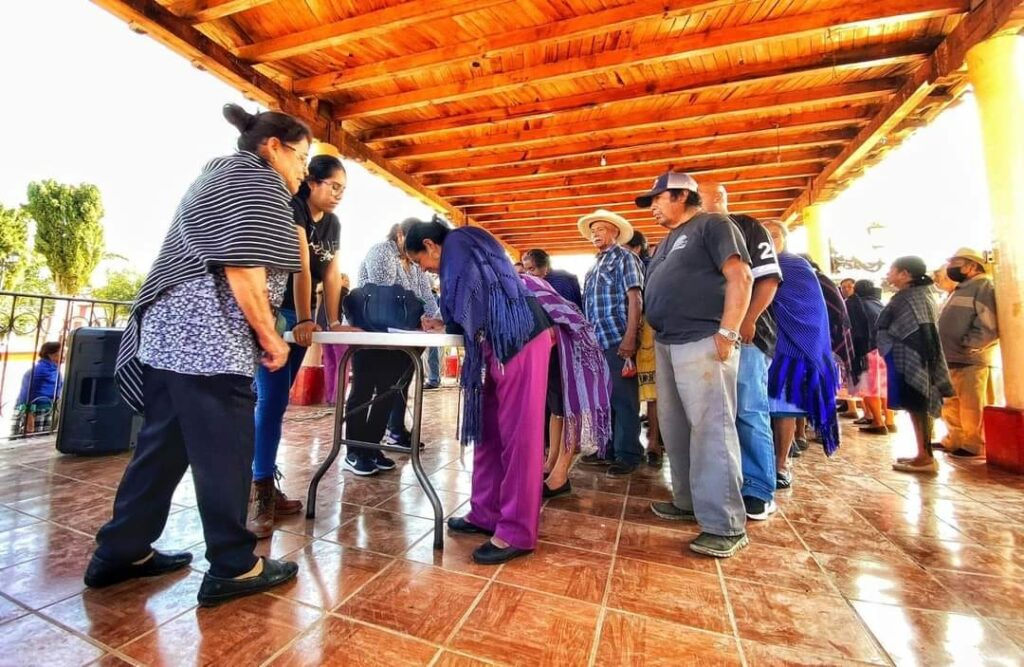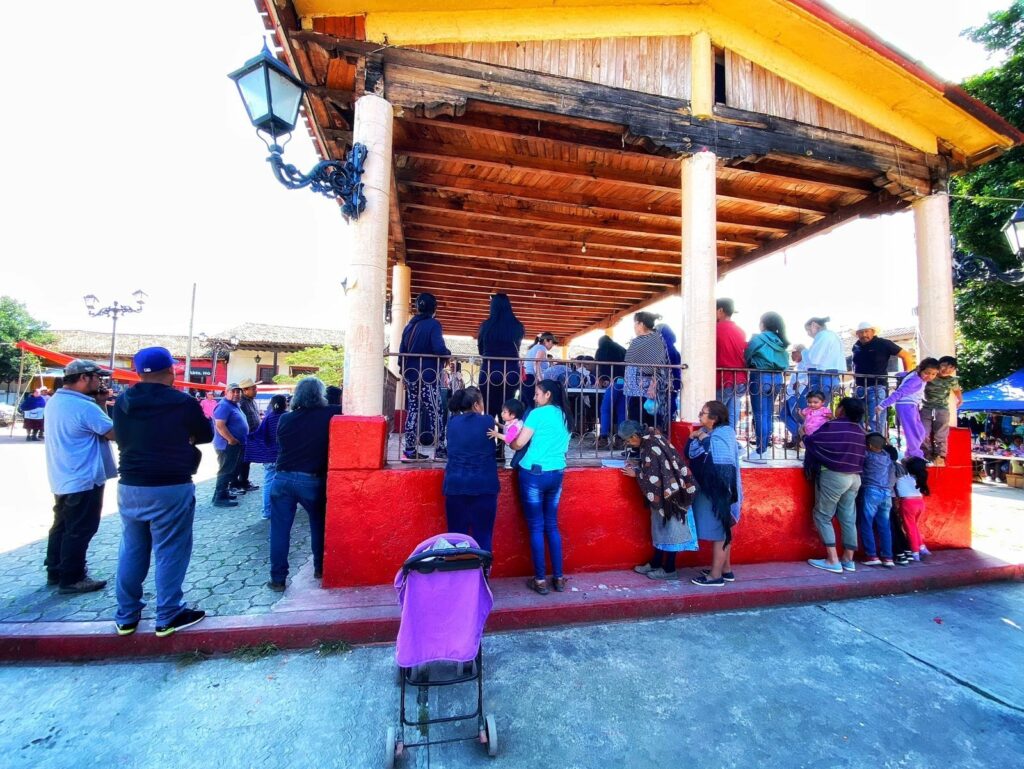Pavel Uliánov Guzmán, spokesperson for the CSIM, on the microphone.
On Monday, November 27, members of the Supreme Indigenous Council of Michoacán (CSIM) legally denounced Juan Calderón Castillejo, municipal president of Erogarícuaro, for threats made against Pavel Uliánov Guzmán, the spokesperson for the Indigenous organization.
Through a communique, the CSIM explained that the municipal president had threatened to forcefully disappear their spokesperson if he continued pushing for processes of autonomy amongst the Indigenous communities in the region.
The council recalls that in June, Uliánov was already threatened with forced disappearance for promoting a consultation in the Purépecha community of San Francisco Uricho, in Erogarícuaro, to decide whether to begin a process of self-government, moving away from the political party system.
According to the CSIM, Calderón Castillejo is a public official who is known for acting against autonomous processes of Indigenous peoples. “It is enough to remember that he presented 18 legal resources against the self-government of the community of Jarácuaro, and on 2 occasions he prevented the free, previous, and informed consultation in the community of San Francisco Uricho,” they said in a communique.

The indigenous council even says that the municipal president threatened to kill, through his political operators, councilwomen of the Electoral Institute of Michoacán (IEM). For this he has been declared a person non grata and a traitor of Indigenous peoples and communities.
“We raise our voice to hold Juan Calderón Castillejo directly responsible for the physical well-being of our spokesperson Pavel Uliánov Guzmán, as well as other members of the CSIM. Castillejo is a transgressor of the collective rights of the Indigenous peoples, seeking reelection as municipal president,” the organization says.
Autonomies in Construction
The CSIM is an organization which brings together representatives and authorities (civil, communal, and traditional) of 70 Indigenous communities of Michoacán, where Purépecha, Nahua, Otomí, and Mazahua peoples in the Western region of the country organize together.
In spite of the context of criminal violence, and in the face of the different threats of territorial dispossession, the work of the council has focused on the construction of autonomous processes in Indigenous communities in Michoacán.
Recently they have incorporated more communities into the work of the CSIM. On Monday, November 27, the Purépecha community of Patamban, in the municipality of Tangancícuaro, through a decision in their general assembly, began on its pathway of autonomy and self-government. Also, on November 21, the districts of 20 de Noviembre, Mapeco, and Valle Dorado, of the municipality of Uruapan, joined the organization.



The CSIM announced “a communal political counter campaign against traitors of the Indigenous communities,” through which they denounced the municipal president of Erogarícuaro, as well as the municipal president of Hidalgo and the National Institute of Indigenous peoples (INPI) in Michoacán, for legal actions against the autonomies of communities like San Matías el Grande, San Francisco Uricho, and Nahuatzen.
According to the CSIM, in addition to the actions of Calderón Castillejo, the municipal president of Hidalgo, José Luis Téllez Marín, has refused to transfer funds directly to the Otomí community of San Matías el Grande.
They denounce that the INPI, through their representative in Michoacán, Celerino Felipe Cruz, “has intervened and litigated against self-government.” Furthermore, they denounce the delay in paperwork for the reception of resources, as happened with the Indigenous community certification, “a requirement unilaterally imposed by the INPI.”
They also announced that in 10 Indigenous communities, with approximately 55, 000 voters, it was decided to not allow the installation of voting booths for the next election on June 2, 2024. Nor will they allow the entrance of candidates to carry out their political party campaigns.
Disappearances, Never Again
Members of the CSIM remember that during the 70’s, the Guzmán Cruz family of which their spokesperson Pavel Guzmán is a part, were victim of forced disappearance.
Five members of the family (Amafer Guzmán Cruz, Armando Guzmán Cruz, José de Jesús Guzmán Jiménez, Adenauer Solón Guzmán Cruz and Venustiano Guzmán Cruz) were forcefully disappeared by elements of the Federal Security Directorate (DFS).

Currently the case is being reviewed by the Interamerican Commission of Human Rights (CIDH), “for which we make a categorical and energetic call on the government of the republic and the government of Michoacán to establish guarantees to not repeat what has already happened. Never again forced disappearance against political organizers and social fighters,” sustains the C

